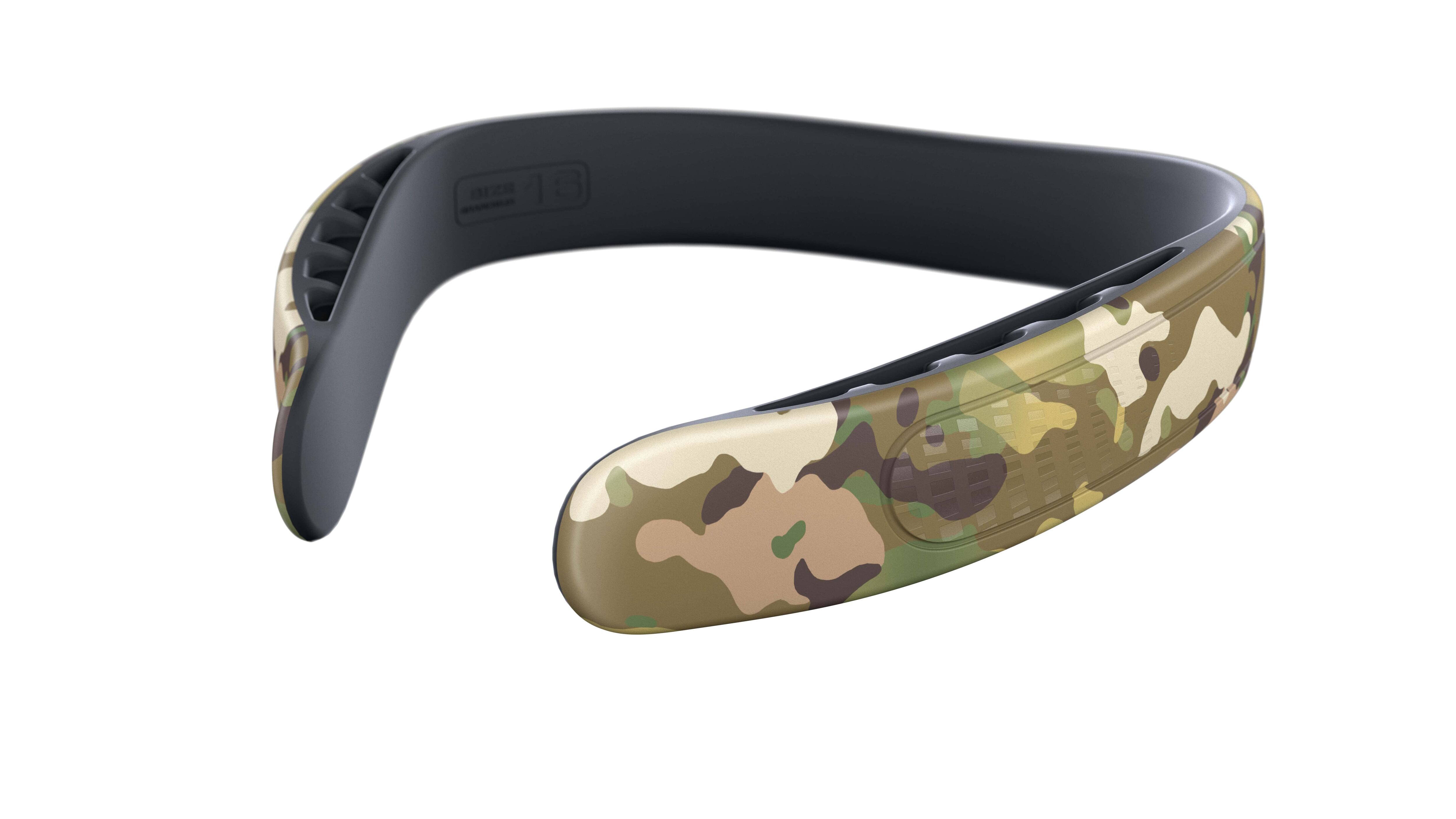A device used by professional athletes could offer a way to reduce the damage caused by concussive blasts common to both training and combat, its developers say. However, critics have questioned how effective this method could be and say more research is needed.
The Q-Collar, made by Q30 Innovations, is on display here at this year’s Shooting, Hunting, Outdoor Trade (SHOT) Show.
The collar, approved by the Food and Drug Administration for use to mitigate repetitive concussive impacts such as those received in contact sports, was analyzed in a recent study that partnered Army researchers with Emory University and concluded its first phase in November, Q30 CEO Tom Hoey told Military Times.
The recent analysis looked at blast exposure, like that experienced by soldiers using explosives and artillery, mortars or shoulder-fired weapons. While research into repetitive impacts has been evaluated by the FDA, blast exposure has not yet been reviewed by the agency.
Military Times recently reported that at least 459,000 troops have been diagnosed with a form of traumatic brain injury since 2000.
Separately Sens. Elizabeth Warren, D-Mass., Joni Ernst, R-Iowa, and Thom Tillis, R-N.C. cited Pentagon studies in a letter to Defense Secretary Loyd Austin showing cognitive deficiencies and memory problems among troops who repeatedly fire heavy weapons. Another study the senators cited noted 75% of blast exposure problems in one unit were from troops firing their own weapons.
The company has asked the FDA to evaluate the research and add the blast exposure results to their already approved use for impacts, Hoey said.
Separate from the Army-Emory study, which used small animals, Q30 worked with Cincinnati SWAT Team members, running functional magnetic resonance imaging on the team before and after a daylong explosives training course. Those who wore the collar had identical before and after scans, those who did not showed deficiencies in cognitive tests following exposure, Hoey said.
The collar puts 1.5 pounds of pressure on the internal jugular vein in the neck, Hoey said. That pressure slows the outflow of blood from the brain by about 20%.
By slowing the blood flow, it backfills blood in the brain keeping the brain from moving around in the skull, Hoey said. Concussions are largely a result of the brain sloshing around inside the skull and bruising or damaging its tissue when it collides with the interior of the skull.
The jugular vein compression has been validated by a 2017 study at Walter Reed National Military Medical Center showing protection against blast-induced traumatic brain injury by increasing brain volume.
However, some critics question the level of protection that the device could provide, and company officials said that research is ongoing.
James Smoliga, a professor of physiology at High Point University in North Carolina, has pushed back on claims made about the device in academic journals, the New York Times reported. In an interview with CBC, the Canadian Broadcasting Corporation, he said that the research wasn’t based on “solid physiology.”
Martha Shenton, a professor of psychiatry and radiology at Harvard’s Brigham and Women’s Hospital, is an expert in the type of brain imaging Q30 scientists have used for much of their research. She reviewed the FDA findings in 2022 at the request of the New York Times. She questioned the interpretation of the data provided by Q30 from their studies. Shenton said the numbers provided run in the opposite direction of what a brain scientist might predict, and only in “one narrow range of severity.”
“(Q30 scientists) say, ‘We get a change and it doesn’t matter the direction,’” Shenton told the New York Times. “It’s so not what you would expect.”
The FDA posted a more detailed summary decision that raised questions about the imaging work. Officials cited uncertainty regarding the imaging technology Q30 used in its studies. Under some circumstances, studies showed slight changes in the brain tissue of soccer and football players who didn’t wear the collar, even if they didn’t report concussion symptoms.
Retired Army Sgt. 1st Class Jon Johnson, a former medic with 5th Special Forces Group who now works for Q30, said the device gives operators a non-invasive way to reduce the effects of work they can’t avoid.
“You’re exposed to explosives, breaching, loud weaponry, all kinds of impacts and sub-concussive events as a lifestyle,” Johnson said.
There isn’t an effective way to completely modify the training or facilities to solve brain trauma exposure problems, he said.
“We’re not going to eliminate exposures — you have to fire these weapons,” Johnson said. “So how do you mitigate some of this?”
Hoey said that the company will continue their research with the Army and Defense Department to show that the collar is acceptable, safe and tolerable.
“I do think the blast study changes the narrative,” Hoey said. “It shows there is a way to prevent injury caused by concussive blast waves. I do think it will change the conversation.”
This story was originally published on militarytimes.com. You can read it here.









